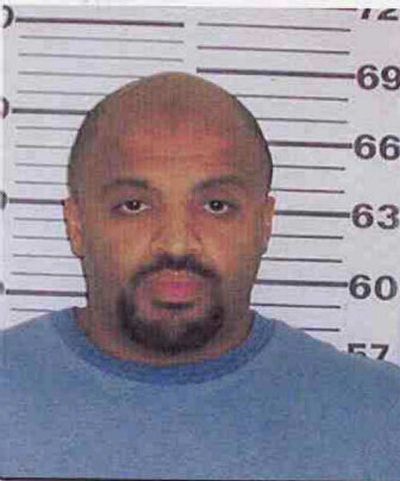Trial ends with bizarre claim

ALEXANDRIA, Va. – Al-Qaida conspirator Zacarias Moussaoui offered last month to testify for prosecutors against himself at his death-penalty trial and told agents that he did not want to die in prison, according to last-minute testimony Tuesday.
The bizarre testimony capped a trial that has seen more than its share of the unusual over three tumultuous weeks. Introduced as part of a brief government rebuttal case, this testimony may be the firmest evidence the 37-year-old Frenchman of Moroccan descent hopes for martyrdom through execution and could provide fodder for the closing arguments of both prosecutors and Moussaoui’s court-appointed defense attorneys.
U.S. District Judge Leonie Brinkema set today for closing arguments on whether the actions Moussaoui has admitted make him eligible for the death penalty. The jury must decide whether the only man charged in this country in the Sept. 11 plot will be executed or imprisoned for life.
Moussaoui offered on Feb. 2, just before jury selection began, to testify that he was to have hijacked and piloted a fifth plane on Sept. 11, 2001. He did not ask that prosecutors stop pursuing the death penalty in return. He sought only better conditions in prison and a promise not to be called to testify against other al-Qaida members.
FBI agent James Fitzgerald said Moussaoui told him – in a jailhouse meeting the defendant requested – that he did not want to die behind bars and it was “different to die in a battle … than in a jail on a toilet.” Moussaoui dropped this bid after he learned that he had an absolute right to testify in his own defense.
On Monday, he stunned the court by asserting that he was to fly a 747 jetliner into the White House on Sept. 11, despite having claimed for three years that he had no role in the plot. Instead, he had said he was to be part of a possible later assault.
The February meeting was to have been off the record but was introduced by prosecutors to rebut a defense exhibit. Closing its case Tuesday, the defense had introduced a partial transcript of Moussaoui’s guilty plea last April.
In that 2005 pleading, Moussaoui said, “Everybody knows that I’m not 9/11 material.” He said Sept. 11 “is not my conspiracy.” He said he was going to attack the White House if the United States did not release radical Egyptian cleric Omar Abdel Rahman, imprisoned for other terrorist crimes.
The latest strange turn in Moussaoui’s behavior could bolster the defense’s claims that he would say anything to achieve martyrdom. Defense attorney Edward MacMahon told jurors in opening remarks that Moussaoui can only achieve that now if they vote to execute him. “Don’t make him a hero,” MacMahon pleaded.
Prosecutors got Brinkema to bar a repeat of that plea as an emotional rather than legal argument. But she agreed to allow MacMahon to argue today that evidence of a desire for martyrdom calls into question the credibility of Moussaoui’s confession to being a part of Sept. 11.
The defense closed out its case Tuesday by using two high-ranking al-Qaida operatives to rebut their own client’s claim that his plan to attack the White House was part of the Sept. 11 attacks.
The leaders of Osama bin Laden’s terrorist group cast doubt on whether Moussaoui was part of Sept. 11, one portraying him as a misfit who refused to follow orders.
Tuesday’s proceedings were quite unusual for an American courtroom: Defense attorneys – appointed by the court to represent a client who despises them – tried to undermine the defendant’s own bombshell testimony of Monday by using witnesses who were not present or seen in the courtroom, primarily because the government refused to allow captured al-Qaida members to appear for national security reasons.
Testimony from five al-Qaida members was read to the jury as defense attorneys tried to undo damage Moussaoui might have done to his case when he testified against their advice.
One terrorist, identified as Sayf al-Adl, a senior member of al-Qaida’s military committee and close aide to bin Laden, stated sometime between Sept. 1, 2001, and late July 2004 that Moussaoui was “a confirmed jihadist but was absolutely not going to take part in the Sept. 11, 2001, mission.” The 9/11 Commission reported the U.S. recovered from a safehouse in Pakistan a letter written by al-Adl describing the various candidates considered for the Sept. 11 attacks.
Another top terrorist witness – Waleed bin Attash, known as Khallad – is considered the mastermind of the 2000 suicide attack on the USS Cole and an early planner of the Sept. 11 plot. He said he knew of no part that Moussaoui was to have played in the Sept. 11 attacks. Khallad was captured in April 2003.
Their testimony supports that of another captive, Khalid Shaikh Mohammed, chief organizer of the Sept. 11 attacks. He said in testimony read Monday that Moussaoui had nothing to do with the Sept. 11 plot, but was to have been part of a later wave of attacks.